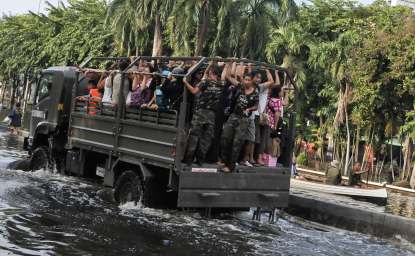Choke Point: India
What happens when the world’s second most populous nation reaches an energy, food, and water choke point? Asia Program Associate Michael Kugelman discusses India's looming resource shortages.
What happens when the world’s second most populous nation reaches an energy, food, and water choke point? Asia Program Associate Michael Kugelman discusses India's looming resource shortages.
What happens when the world’s second most populous nation reaches an energy, food, and water choke point? Will India’s ambitions to become a modern influential state be stymied by a shortage of resources? And what can be done to overcome these looming problems?
Asia Program Associate Michael Kugelman discusses India's looming resource shortages.
Michael Kugelman is a senior program associate for South and Southeast Asia for the Wilson Center’s Asia Program. His most recent work has focused on Pakistan's 2013 elections, India-Pakistan relations, U.S.-Pakistan relations, and security challenges in India. He has published op-eds, commentaries, and blog posts in the New York Times, Foreign Policy, Bloomberg View, Politico, CNN.com, Al Jazeera, The National Interest, The Diplomat, Huffington Post, World Politics Review, Dawn, Express Tribune, Times of India, Indian Express, and Asia Times Online.
On April 2, Circle of Blue and the Wilson Center presented the findings of their Choke Point: India initiative, an exploration into the water-energy-food confrontations in the world’s second most populous country.


The Indo-Pacific Program promotes policy debate and intellectual discussions on US interests in the Asia-Pacific as well as political, economic, security, and social issues relating to the world’s most populous and economically dynamic region. Read more


The Environmental Change and Security Program (ECSP) explores the connections between environmental change, health, and population dynamics and their links to conflict, human insecurity, and foreign policy. Read more


